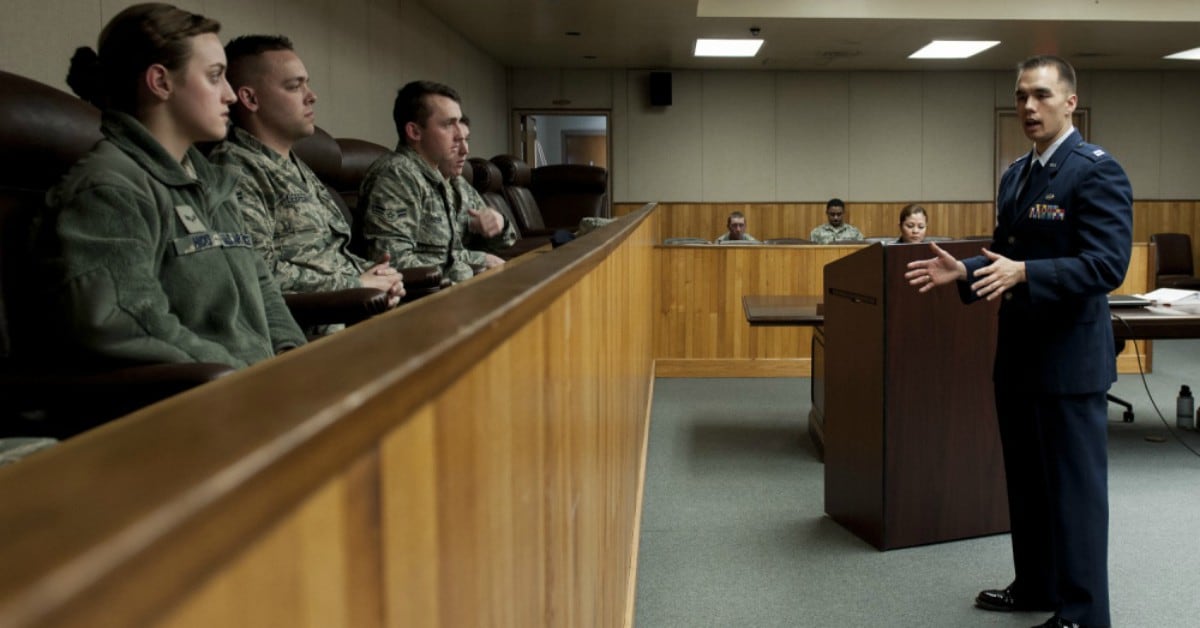Veteran education advocates are continuing to fight a controversial bill that would sunset a student loan forgiveness benefit for public-sector employees, including service members, hoping their efforts — and the Pentagon’s opposition — can keep it from ever getting to a vote.
“It’s a national security issue at this point, and that’s highly concerning to us,” said Tanya Ang, policy and outreach director for Veterans Education Success.
The nonprofit is one of many veteran service organizations that have opposed the legislation since it was first introduced by Republican House lawmakers late last year. Among their chief concerns with the PROSPER Act is its proposal to eliminate the public service loan forgiveness program for nonprofit workers and employees of local, state and federal agencies, including the military.
Despite the opposition, the bill’s proponents see PROSPER as a way to curb rising college costs and enable students to pursue careers without demonstrable student loan debt. A spokesman for the House Committee on Education and the Workforce told Military Times, “We have heard from many groups on provisions within the PROSPER Act, and believe the bill will provide veterans and active duty military the best opportunity to achieve a postsecondary education that they rightly deserve.”
A Defense Department document released earlier this year states the loan forgiveness program, available to eligible borrowers after 10 years of qualifying student loan payments, is an “important recruitment and retention tool for the military to compete with the civilian sector,” particularly in specialty fields. The Navy has also raised concerns for the Navy Judge Advocate General’s Corps, which leans on this program as an incentive for new recruits.
The House committee spokesman did not comment directly on the Pentagon’s position.
Ang said, “When you’re dealing with issues as (loan forgiveness) and cutting a recruiting tool for our armed services when we’re in one of the longest wars we’ve ever been in, that to me is a national security issue.”
A House committee spokesman told Military Times in March that borrowers currently using federal direct student loans would be grandfathered into the legislation and would not be affected if the program is cut. According to the DoD document, approximately 6,800 service members are anticipating having their student loan debt written off through the loan forgiveness program, created in 2007.
Though there’s been no movement on the bill since February, the education committee spokesman said staff are working with House leadership to getting it to the floor.
But the clock is ticking.
Sources with close knowledge of the legislative agenda tell Military Times PROSPER has a lot of must-pass legislation to compete with, and the partisan nature of the bill may make it a tough sell in an already-contentious election cycle.
“There are a lot of concerns from both sides of the aisle on it,” said Lauren Augustine, policy director for Student Veterans of America.
And with August recess just two and a half months away, “it’s less likely to have floor time as the floor time dwindles,” Augustine said, though she’s not ruling it out. She and Ang said it’s clear the bill’s Republican proponents, led by House Education and the Workforce Committee chairwoman Rep. Virginia Foxx, R-N.C., are committed to moving forward with the legislation as soon as possible.
“My feeling is that if we can get through (July) then it will probably be OK,” Ang said.
House Majority Leader Kevin McCarthy’s office did not respond to requests for comment on how soon the bill may hit the House floor for a vote. But even if it does make it to the floor, PROSPER is unlikely to get a fast-track through Congress, as the Senate has made no moves to introduce companion legislation.
A representative for Senate education committee chairman Sen. Lamar Alexander, R-Tenn., told Military Times earlier this year that the Committee on Health, Education, Labor and Pensions planned to unveil a bipartisan higher education bill by the spring, though it would not necessarily mirror the PROSPER Act. However, a committee spokeswoman said last week that timeline is now “probably not likely.”
She said that while the committee is ready and willing to work on legislation, there’s a lot more that needs to be done before they’re ready to introduce a bill.
“There are a lot of problems that we agree on and … a lot of things where we differ, and we have to get in the room and figure out what works for a compromise,” she said.
Alexander has been critical of loan forgiveness programs in the past, but the committee’s ranking member, Sen. Patty Murray, D-Wash., supports public service loan forgiveness.
“I think the PROSPER Act is a partisan bill proposed by the Republicans in the House and was jammed through committee at the objection of the committee Democrats,” the committee spokeswoman said. “Sen. Murray and Sen. Alexander have a good reputation of working together on bipartisan (bills).”
If PROSPER passes and the public service loan forgiveness program ends, the Defense Department has recommended increasing military funding to develop alternative recruitment and retention incentives to offset its loss.
“I think there’s a little bit more pressure on us now to continue to voice our concerns,” Ang said. “We would love to see something that is … going to work for students just across the board.”
Military Times contributor and former reporter Natalie Gross hosts the Spouse Angle podcast. She grew up in a military family and has a master's degree in journalism from Georgetown University.




